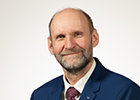Vabariigi Presidendi poolt välja kuulutamata jäetud kirikute ja koguduste seaduse muutmise seaduse (570 UA) uuesti arutamine
Istung: XV Riigikogu, V istungjärk, täiskogu istung
Kuupäev: 2025-05-14 18:12
Sõnavõtte kokku: 80
Koosseis: 15
Päevakorra kestus: 1h 41m
AI kokkuvõtted: 80/80 Sõnavõtud (100.0%)
Analysis: Structured Analysis
Poliitikute Kõneaeg
Poliitikud
Analüüs
Kokkuvõte
Neljanda päevakorrapunkti teema oli Vabariigi Presidendi poolt Riigikogule tagasi saadetud kirikute ja koguduste seaduse muutmise seaduse [uuesti arutamine]. Istungijuhid selgitasid menetlemise korda: esmalt põhiseaduskomisjoni esindaja ettekanne (kuni 20 minutit), seejärel õiguskomisjoni esindaja ettekanne (kuni 20 minutit). Riigikogu liige võis esitada kummalegi ettekandjale ühe küsimuse. Seejärel toimuvad läbirääkimised, kus osaleda võivad kõik Riigikogu liikmed ning komisioonide ja fraktsioonide esindajad; sisuline küsimus on piirangute põhjendatus ja arutelu peab jääma just motiivide avaldamiseks. Lõpuks hääletus, mille sisu on otsus seaduse muutmata kujul uuesti vastu võtmise kohta. Selline hääletus on keeruline: need, kes leiavad, et Riigikogu on seaduse korrektselt menetlenud ja muutmist ei vaja, peaksid hääletama poolt; vastasel juhul, kui leebemad vormid või sisu muutmine on vajalik, tuleb hääletada vastu. Pärast esialgset selgitust jätkasid põhiseadus- ja õiguskomisjoni liikmed ning lõpetuseks viidi läbi lõpphääletus.
Tehtud otsused 1

Riigikogu ei võtnud vastu muutmata kujul uuesti vastuvõtmist ning otsustas muuta või arutada eelnõu koos muudatusettepanekutega. Samuti määrati juhtivkomisjoniks Ando Kiviberg (põhiseaduskomisjon) ja otsustati, et järgmiseks samme teeb õiguskomisjon, mis korraldab menetluse edasises töös.
Aktiivseimkõneleja
Kõige aktiivsem kõneisik istungil oli TpUtVYyRrvw, mis eristub kui põhiseaduskomisjoni esimees ning juhtiv esindaja istungil; tema roll oli juhtiv ja koordineeriv (kasuvas “other” positsioonina, mitte vasakul või paremal).
Aseesimees Toomas Kivimägi
AI kokkuvõte
Toomas Kivimägi selgitas neljanda päevakorrapunkti menetlust, kus läbirääkimised keskenduvad presidendi välja kuulutamata jätmise motiividele ning ei käsitle eelnõu sisu, ning hääletusega otsustatakse, kas võtta seadus vastu muutmata kujul või suunata see edasi muudatusettepanekutega.

Ando Kiviberg
Profiileerimine Fraktsiooni mittekuuluvad Riigikogu liikmedAI kokkuvõte
Riigikogu põhiseaduskomisjon otsustas mitte võtta muutmata kujul uuesti vastu presidendi poolt tagasi saadetud kirikute ja koguduste seaduse muutmise seadust ning määras komisjoni juhiks Ando Kivibergi juhtivaks esindajaks.
Aseesimees Toomas Kivimägi
AI kokkuvõte
Aseesimees Toomas Kivimägi tänas täpse ja ratsionaalse ettekande eest ning kutsus Peeter Ernitsa küsimusi esitama.

Peeter Ernits
Profiileerimine Fraktsiooni mittekuuluvad Riigikogu liikmedAI kokkuvõte
Peeter Ernits küsib juhatajale ja lugupeetud ettekandjale, kuidas iguumenja Filareta ja tema nunnad ohustavad Eesti julgeolekut ning kas seda on arutatud.

Ando Kiviberg
Profiileerimine Fraktsiooni mittekuuluvad Riigikogu liikmedAI kokkuvõte
Ando Kiviberg ütles, et seda teemat sellel istungil ei arutatud ning ta ei pea praegu oma isiklikku seisukohta antud küsimuses avaldama.
Aseesimees Toomas Kivimägi
AI kokkuvõte
Aseesimees Toomas Kivimägi kutsus Rain Eplerit esinema.

Rain Epler
Profiileerimine Fraktsiooni mittekuuluvad Riigikogu liikmedAI kokkuvõte
Rain Epler märkis, et kuigi ettekanne oli ratsionaalne, tundus tema jaoks, et arutelu piirdus vormiga—kas heaks kiita muutmata kujul või mitte—kuna otsus on tihedalt seotud sisulise aruteluga.

Ando Kiviberg
Profiileerimine Fraktsiooni mittekuuluvad Riigikogu liikmedAI kokkuvõte
Ando Kiviberg ütles, et arutati võimalikke muudatusi ning kuulati ära nii presidendi kantselei esindaja kui ka algataja Siseministeeriumi seisukohad, enne kohtumist konsulteeriti õiguskomisjoni ja põhiseaduskomisjoniga, ning Riigikogu saab edasi tööd tehes leida ühiselt sobiva lahenduse.
Aseesimees Toomas Kivimägi
AI kokkuvõte
Kõne on tänusõna ning suunatud Maria Jufereva-Skuratovski poole palvega.

Maria Jufereva-Skuratovski
Profiileerimine Fraktsiooni mittekuuluvad Riigikogu liikmedAI kokkuvõte
Maria Jufereva-Skuratovski kinnitas Rain Eplerile, et arutelu seaduseelnõu oli väga sisuline ja me läksime tegelikult väga süvitsi sisse, ning küsis, milline komisjon edaspidi seda menetleb – põhiseaduskomisjon või õiguskomisjon või kas mõlemad koos.

Ando Kiviberg
Profiileerimine Fraktsiooni mittekuuluvad Riigikogu liikmedAI kokkuvõte
Ta ütles, et eelnõu juhtivkomisjon on õiguskomisjon ning kui täiskogu otsustab, et tuleb asuda muutmise juurde, langeb see õiguskomisjoni lauale.
Aseesimees Toomas Kivimägi
AI kokkuvõte
Aseesimees Toomas Kivimägi kutsus Vadim Belobrovtsevi lavale.

Vadim Belobrovtsev
Profiileerimine Eesti Keskerakonna fraktsioonAI kokkuvõte
Ta palus natuke täpsemalt selgitust presidendi nõuniku välja käidud ideele, mille kohaselt Keskerakonna muudatusettepaneku heakskiitmisel ja vastu võtmisel oleks olukord võib-olla teistsugune ning president oleks ehk seaduse välja kuulutanud.

Ando Kiviberg
Profiileerimine Fraktsiooni mittekuuluvad Riigikogu liikmedAI kokkuvõte
Ta palub täpsustada, millest rääkida, kinnitab, et on muudatuse sõnastuse täpselt välja toonud, ning soovib paremini aru saada, mida küsimus täpsemalt sisaldab.

Vadim Belobrovtsev
Profiileerimine Eesti Keskerakonna fraktsioonAI kokkuvõte
Ta kahtleb, kas ta tsiteeris tõepoolest presidendi nõuniku arvamust, ning meenutab, et mälu võib eksida.

Ando Kiviberg
Profiileerimine Fraktsiooni mittekuuluvad Riigikogu liikmedAI kokkuvõte
Ta ütles, et luges protokollist ette selle tsitaadi ning et muudatusettepanek oli Keskerakonna esitatud õiguskomisjonis, mitte põhiseaduskomisjonis.
Aseesimees Toomas Kivimägi
AI kokkuvõte
Aseesimees Toomas Kivimägi kutsub Varro Vooglaid'i esinema.

Varro Vooglaid
Profiileerimine Fraktsiooni mittekuuluvad Riigikogu liikmedAI kokkuvõte
Vooglaid märkis, et kogu istungi vältel seaduse vastuvõtmise poolt hääletanud saadikud vaidlesid presidendi kantselei vastu ning konsensuslikult otsustati eelnõu muutmata kujul mitte vastu võtta, ning ta küsib, miks seda ei võiks uuesti arutada ja anda Riigikohtule võimalus hinnata seaduse põhiseaduslikkust.

Ando Kiviberg
Profiileerimine Fraktsiooni mittekuuluvad Riigikogu liikmedAI kokkuvõte
Ma räägin isiklikult ja olen valmis selle sammuga, sest presidendi kantselei on näidanud selget nägemust versioonist, millega nad oleksid leppinud, mis viitab võimalikule kokkuleppele; teised komisjoni liikmed peavad aga oma arvamuse välja ütlema.

Martin Helme
Profiileerimine Eesti Konservatiivse Rahvaerakonna fraktsioonAI kokkuvõte
Martin Helme ütles, et fraktsioon hääletas eelnõu vastu põhiceadusega vastuolu tõttu ning et see puudutab kõiki kirikuid, usuühendusi ja MTÜ-sid, ning pärast presidendi vastuväidet ja tagasisaatmist küsis ta, mida tegelikult plaanitakse muuta, kui kõik on korras.
Aseesimees Toomas Kivimägi
AI kokkuvõte
Aseesimees Toomas Kivimägi palub Martin Helmet tulla kõnelema.

Ando Kiviberg
Profiileerimine Fraktsiooni mittekuuluvad Riigikogu liikmedAI kokkuvõte
Ando Kiviberg ütles, et põhiseaduskomisjon ei otsustanud täpselt, mida muuta; esitati ettepanekuid, sealhulgas presidendi oma, kuid neid ei arutatud selles vormis ning kui seadus on mitmeti tõlgendatav või põhiseadusega vastuolus ja seda saab muuta täpsemaks ning üheselt arusaadavaks, on ta valmis selle eest seisma.
Aseesimees Toomas Kivimägi
AI kokkuvõte
Aseesimees Toomas Kivimägi kutsus Mart Helme kõnelema.

Mart Helme
Profiileerimine Eesti Konservatiivse Rahvaerakonna fraktsioonAI kokkuvõte
Mart Helme esitas teoreetilise küsimuse, et kui uus paavst avaldaks Venemaa agressiooni toetamist ja koalitsioon võtaks selle seaduse muutmata kujul vastu, kas siis tuleks katoliku kirik keelata või sundlikvideerida?
Aseesimees Toomas Kivimägi
AI kokkuvõte
Toomas Kivimägi tänas kuulajaid.

Mart Helme
Profiileerimine Eesti Konservatiivse Rahvaerakonna fraktsioonAI kokkuvõte
Mart Helme rõhutab, et karistus peab olema, kuid seadus ei tohi olla niisugune kummist seadus, mis võimaldab seda kasutada kõigi vastu.
Aseesimees Toomas Kivimägi
AI kokkuvõte
Aseesimees Toomas Kivimägi väljendas tänu.

Mart Helme
Profiileerimine Eesti Konservatiivse Rahvaerakonna fraktsioonAI kokkuvõte
Mart Helme küsib, kas kuulajad said aru tema mõttest, kas nad lükkavad selle ümber või kinnitavad ning mis on nende seisukoht.

Ando Kiviberg
Profiileerimine Fraktsiooni mittekuuluvad Riigikogu liikmedAI kokkuvõte
Ando Kiviberg ütles, et paavstide seisukohad on erinevad: eelmine paavst tegi Venemaad toetanud avaldusi, kuid oluline on, kas sa toetad agressori kuritegu ja annad juhiseid konfessiooni liikmetele, ning me jääme eriarvamusele, lastes asjatundjatel eeltöö teha ja hiljem otsustada, milline seisukoht võtta.
Aseesimees Toomas Kivimägi
AI kokkuvõte
Toomas Kivimägi tänab ja kutsub Riigikogu kõnetooli juhtiva komisjoni esindaja, antud juhul õiguskomisjoni liikme Andre Hanimägi, esinema.

Andre Hanimägi
Profiileerimine Fraktsiooni mittekuuluvad Riigikogu liikmedAI kokkuvõte
Komisjon arutas põhiseaduslikkuse, usuvabaduse piirangu ja mõistete täpsustamise üle, leidis, et seaduse eesmärk on õiguslikult põhjendatud ning teksti tuleb paremini sõnastada, ning otsustas esitada eelnõu täiskogule 14. mail ning mitte võtta muutmata kujul uuesti vastu Riigikogule saadetud kirikute ja koguduste seaduse muutmise eelnõu.
Aseesimees Toomas Kivimägi
AI kokkuvõte
Aseesimees Toomas Kivimägi tänas ja tunnustas kõnelejat kui väga asjatundlikku, selget ja konkreetset ning kutsus Martin Helme küsimusi esitama.

Martin Helme
Profiileerimine Eesti Konservatiivse Rahvaerakonna fraktsioonAI kokkuvõte
Martin Helme süüdistab vastaseid selles, et nad esitlevad risti vastupidiselt presidendi väitele, rõhutab, et julgeolekuaspektist on Eesti riigil kõik vahendid olemas ja uut seadust pole vaja ning seda ei tohi teha, ning küsib, miks seadust avatakse muudatuste tegemiseks ja millised muudatused täpselt olema peaksid.

Andre Hanimägi
Profiileerimine Fraktsiooni mittekuuluvad Riigikogu liikmedAI kokkuvõte
Andre Hanimägi ütles, et president ei vaidlustanud seaduse eesmärki – julgeolekut – ning kui mõisted on ebaselged, vaadatakse need üle ja vajadusel muudetakse, ning kui Riigikogu arvab, et presidendi tähelepanekud tuleb parandada, antakse sellele võimalus.
Aseesimees Toomas Kivimägi
AI kokkuvõte
Aseesimees Toomas Kivimägi palus Vadim Belobrovtsevi esinema.

Vadim Belobrovtsev
Profiileerimine Eesti Keskerakonna fraktsioonAI kokkuvõte
Belobrovtsev esitas kaks küsimust: milline on selle seaduse täpne eesmärk ja kas selle vastuvõtmine on üldse vajalik, kui sama regulatsioon on juba olemas teistes seadustes.

Andre Hanimägi
Profiileerimine Fraktsiooni mittekuuluvad Riigikogu liikmedAI kokkuvõte
Andre Hanimägi tõi välja kaks murekohta: usuvabaduse piiramine ja küsimus, kas eesmärke saab saavutada ka muul viisil, sealhulgas Keskerakonna muudatusettepanek, mis ei tohi täita käske, mis on ilmselgelt julgeolekule ohtlikud, ning lisas, et kui seadus vastu võetakse, annaks see siseministrile võimaluse kohtus otsustada, kas konkreetne usuühendus ja selle side välismaa isikuga ohustab julgeolekut, mis näitab, et julgeolek pole must-valge ning hõlmab pikaajalist mõjutustegevust ja laiemat temaatikat.
Aseesimees Toomas Kivimägi
AI kokkuvõte
Kahjuks puudub kõne tekst, seetõttu ei ole võimalik teha kokkuvõtet.

Maria Jufereva-Skuratovski
Profiileerimine Fraktsiooni mittekuuluvad Riigikogu liikmedAI kokkuvõte
Ta küsib, kui Riigikogu otsustab seadust muuta, kas õiguskomisjonil on juba plaan menetluseks ja kas nad kohtuvad taas kiriku esindajate ja kaitsjatega või suudavad muudatused ise välja mõelda.

Andre Hanimägi
Profiileerimine Fraktsiooni mittekuuluvad Riigikogu liikmedAI kokkuvõte
Aitäh küsimuse eest; tegelikult puudub nii teadmine kui plaan ning avalikkuses kajastatud uudis uuest eelnõust ei kajasta tegelikku arutelu, mis ilmselt tulenes Härra Vooglaiu sõnastusest ja mille eesmärk oli eemaldada probleemsed ning üldise tähendusega sõnad nagu "juhinduma" ja "märkimisväärne isik", kuid lõppkokkuvõttes tuleb komisjonis arutada, kas taas kaasata eksperte, mida vajadusel teeb komisjoni esimees.
Aseesimees Toomas Kivimägi
AI kokkuvõte
Toomas Kivimägi ütles, et debatt on väga sisukas ja asjalik, võttis vahele ühe küsimuse juhatajale ning kutsus Vadim Belobrovtsevi, öeldes, et sellest võib veel paremaks minna.

Vadim Belobrovtsev
Profiileerimine Eesti Keskerakonna fraktsioonAI kokkuvõte
Belobrovtsev rõhutab, et ei kuritarvita võimalust, ning selgitab, et küsis konkreetse küsimuse eelnõu eesmärgi kohta, millele ta ei saanud vastust, ning soovitab ettekandja käest uuesti küsida.
Aseesimees Toomas Kivimägi
AI kokkuvõte
Toomas Kivimägi rõhutas, et ühe minuti jooksul võib esitada vaid ühe küsimuse; kuigi ettekandja on püüdnud vastata kõigile, on tal õigus valida, millele vastab, ja eraldi uuesti sõna saamist vastamiseks ei ole lubatud.

Peeter Ernits
Profiileerimine Fraktsiooni mittekuuluvad Riigikogu liikmedAI kokkuvõte
Ettekandja esitab reaalse küsimuse, kuidas igumenja Filareta ja tema 170-nunnast koosnev grupp vanuses 20–87 aastat ohustab Eesti julgeolekut ja põhiseaduslikku korda.

Andre Hanimägi
Profiileerimine Fraktsiooni mittekuuluvad Riigikogu liikmedAI kokkuvõte
Andre Hanimägi väitis, et seaduse eesmärk ei ole võidelda nunnadega, vaid takistada välismaist mõjutustegevust kirikutele ja kogudustele ning kaitsta avalikku korda ja julgeolekut.
Aseesimees Toomas Kivimägi
AI kokkuvõte
Toomas Kivimägi kinnitas, et kõik on kenasti vastatud ja korras, ning kutsus Vladimir Arhipovi.

Vladimir Arhipov
Profiileerimine Fraktsiooni mittekuuluvad Riigikogu liikmedAI kokkuvõte
Vladimir Arhipov küsis, kas komisjon arutles vaid põhiseaduslike õiguste ja vabaduste rikkumise või rikkumata jätmise küsimuste üle ning kas arvestati ka emotsionaalset külge, näiteks 150 000 liikmega õigeuskliku kogukonna usuvabaduse piiramist ja et seda arvamust jagab suur osa muust maailmast.

Andre Hanimägi
Profiileerimine Fraktsiooni mittekuuluvad Riigikogu liikmedAI kokkuvõte
Andre Hanimägi rõhutas, et arutatud eelnõu ei ole rünnak usuvabadusele ega kellegi usulise praktikaga seotud piiramine, vaid puudutab administratiivset seost ning ükski julgeolekuasutus ei ütle sulle, millist jumalat sa võid uskuda või teenida.
Aseesimees Toomas Kivimägi
AI kokkuvõte
Kõne algab palvega, et Varro Vooglaid tuleks lavale.

Varro Vooglaid
Profiileerimine Fraktsiooni mittekuuluvad Riigikogu liikmedAI kokkuvõte
Varro Vooglaid tõi välja kaks tähtsat punkti, mida ülevaates jäi märkamata: esimene, et presidendi kantselei esindaja viitas põhiseaduse § 130 usuvabaduse piiramatusele ka erakorralisel ajal ja sellest võiks teha praktilisi järeldusi; teine, et presidendi kriitika on põhimõtteline ning kuni kanoniliste sidemete katkestamise nõue püsib, säilib ka põhiseadusvastasus, mida ta palub protokollile laiemalt käsitleda.

Andre Hanimägi
Profiileerimine Fraktsiooni mittekuuluvad Riigikogu liikmedAI kokkuvõte
Andre Hanimägi ütles, et põhiküsimus on, kas kanooniline side on võimalik lõpetada ning kas see on põhimõtteline ja usuvabadust piirav, arvestades julgeoleku ja avaliku korra vajadusi, ning et lõpuks saab saal otsustada, kuidas edasi.
Aseesimees Toomas Kivimägi
AI kokkuvõte
See on lühike üleskutse Rain Eplerile lavale tulla.

Rain Epler
Profiileerimine Fraktsiooni mittekuuluvad Riigikogu liikmedAI kokkuvõte
Rain Epler märgib, et kuigi president alguses väitis seaduse põhiseaduslikkuse puudumist ning piirangute proportsionaalsust usuvabadusele ja ühinemisvabadusele, selgub hiljem, et ta jälgis Riigikogu ja luges seletuskirja, milles on määratud seaduse peamine eesmärk, ning seetõttu ei saa väita, et ta sellele nõustub.

Andre Hanimägi
Profiileerimine Fraktsiooni mittekuuluvad Riigikogu liikmedAI kokkuvõte
Kokkuvõttes ütles Andre Hanimägi, et kuigi presidentil pole põhimõttelist vastuseisu eesmärgile tagada julgeolek ja avalik kord, arutatakse, kas sama eesmärk saab täita olemasolevate seadustega või on vaja täiendavaid kontrolle ning lõplik küsimus riive suuruse kohta jääb Riigikogule seaduse muutmise vajaduse otsustamiseks.
Aseesimees Toomas Kivimägi
AI kokkuvõte
Toomas Kivimägi tänas ja ütles, et rohkem küsimusi ei ole, avab läbirääkimised ning neid alustab hea kolleeg Lauri Läänemets, paludes lisaaega; aega on kaheksa minutit.

Lauri Läänemets
Profiileerimine Sotsiaaldemokraatliku Erakonna fraktsioonAI kokkuvõte
Lauri Läänemets väidab, et seaduse eesmärk on kaitsta Eesti julgeolekut ja lõpetada Kremliga seotud juriidiline alluvus, mitte piirata usuvabadust, ning ennetada Venemaa mõju Eesti usuelus, et õigeusklikud saaksid rahulikult pühenduda oma usule.
Aseesimees Arvo Aller
AI kokkuvõte
Aseesimees Arvo Aller tänas, palus Martin Helme kõnelema ja küsis juurde kolm minutit aega.

Martin Helme
Profiileerimine Eesti Konservatiivse Rahvaerakonna fraktsioonAI kokkuvõte
Martin Helme ütles, et see seadus on põhiseadusvastane ning ohustab kõigi vabadusi ja kodanikuühenduste õigusi, ning et kriitikat vaigistatakse Putini retoorikaga, hoiatades, et selline õigusloom viib Eesti totalitaarse korra poole—seadust tuleb muuta, sest demokraatia kaitseks on olemas teised seaduslikud vahendid.
Aseesimees Arvo Aller
AI kokkuvõte
Aseesimees tänas ja kutsus järgmisena kõnetooli Vadim Belobrovtsevi.

Vadim Belobrovtsev
Profiileerimine Eesti Keskerakonna fraktsioonAI kokkuvõte
Vadim Belobrovtsev väidab, et Keskerakonna eelnõu oli suunatud ainult Eesti Õigeusu Kirikule, on põhiseadusega vastuolus ning president on öelnud, et seda ei ole vaja välja kuulutada, sest kõik vajalik on juba teistes seadustes olemas.
Aseesimees Arvo Aller
AI kokkuvõte
Aseesimees Arvo Aller palub anda veel kolm minutit lisaks.

Vadim Belobrovtsev
Profiileerimine Eesti Keskerakonna fraktsioonAI kokkuvõte
Vadim Belobrovtsev ütles, et eelnõu on põhiseadusega vastuolus, ning president on selle väga selgelt välja öelnud, nii et see tuleks kalevi alla panna või prügikasti visata, sest olemasolevad seadused reguleerivad olukorra ja algne eesmärk ei saa sellega koos kehtima.
Aseesimees Arvo Aller
AI kokkuvõte
Aitäh; järgmiseks tuleb Vladimir Arhipov ning kõneleja palus kolm minutit lisaaega.

Vladimir Arhipov
Profiileerimine Fraktsiooni mittekuuluvad Riigikogu liikmedAI kokkuvõte
Vladimir Arhipov rõhutab, et Eesti Kiriku iseseisvus ja usuvabaduse piiramata jätmine on oluline ning riigi ja kiriku lahutust tuleb säilitada, sest õigusriik ei tohi usukultuuri vastandumist õhutada ega meenutada varasemaid repressioone, vaid peaks soodustama rahu ja koostööd kristlike väärtustega.
Aseesimees Arvo Aller
AI kokkuvõte
Aitäh ja järgmisena tuleb Peeter Ernits.

Peeter Ernits
Profiileerimine Fraktsiooni mittekuuluvad Riigikogu liikmedAI kokkuvõte
Peeter Ernits ütles Riigikogus, et hääletas kirikuseaduse vastu, sest ajastus oli vale ning rahvusvahelises kontekstis, eriti USA ja naabritega suhetes, on vaja kaalutletud otsuseid, mitte kiirustavaid samme.
Aseesimees Arvo Aller
AI kokkuvõte
Kõne sisaldab ainult ühte küsimust: "Soovid lisa aega?"

Peeter Ernits
Profiileerimine Fraktsiooni mittekuuluvad Riigikogu liikmedAI kokkuvõte
Ta vastab jaatavalt ning palub midagi.
Aseesimees Arvo Aller
AI kokkuvõte
Aseesimees Arvo Aller palub kolm minutit aega.

Peeter Ernits
Profiileerimine Fraktsiooni mittekuuluvad Riigikogu liikmedAI kokkuvõte
Peeter Ernits rõhutab, et meil on vaja julgeolekugarantiisid, kutsub järgima Soome eeskuju varjendite ehitamise ja vaikselt relvastumise kaudu ning naabri provokatsioonide vältimisega, ning taunib eelnõu muutmata jätmist ning rõhutab samal ajal, et kirikut ja usklikke inimesi ei tohi näppida.
Aseesimees Arvo Aller
AI kokkuvõte
Arvo Aller tänab ja kutsub järgmisena lavale Lauri Laats ning seejärel Varro Vooglaid, mille ajal saal vastab jaatavalt ning midagi vilgub.

Varro Vooglaid
Profiileerimine Fraktsiooni mittekuuluvad Riigikogu liikmedAI kokkuvõte
Varro Vooglaid ütleb, et parlamendis on tõsine häbi, kuna 60 saadikut hääletasid teadlikult põhiseadusvastase eelnõu, mis rikub usuvabadust ja kiriku enesekorralduse põhimõtteid, ning see demonstreerib lausvalelikkust ja poliitilise kultuuri puudumist riigivõimu kasutamisel.
Aseesimees Arvo Aller
AI kokkuvõte
Aseesimees Arvo Aller ütles, et antakse kolm minutit lisaks.

Varro Vooglaid
Profiileerimine Fraktsiooni mittekuuluvad Riigikogu liikmedAI kokkuvõte
Varro Vooglaid rõhutab, et president ei toetanud valet ning eelnõu on kosmeetiline ja ei kõrvalda põhiseadusvastasust, ning riik ei tohi nõuda üheltki usuühenduselt kanooniliste sidemete katkestamist, sest usuvabadus on kaitstud ka erakorralise seisukorra ajal; seetõttu tuleb eelnõu muuta nii, et tõeliselt kõrvaldaks põhiseadusvastasus, vastasel juhul on tegemist farsiga.
Aseesimees Arvo Aller
AI kokkuvõte
Aseesimees tänab ja teatab, et järgmiseks tuleb Helir-Valdor Seeder.

Helir-Valdor Seeder
Profiileerimine Isamaa fraktsioonAI kokkuvõte
Helir-Valdor Seeder väidab, et eelnõu on põhiseadusega kooskõlas ning Eesti julgeoleku seisukohalt väga vajalik, ning soovitab jätkata menetlemist ja sõnastuse täpsustamist parlamendi õigus- ja põhiseaduskomisjonide ning järelevalveinstantsioonide kaudu (Riigikohus, õiguskantsler).
Aseesimees Arvo Aller
AI kokkuvõte
Kõne rõhutab vajadust saada veel kolm minutit.

Helir-Valdor Seeder
Profiileerimine Isamaa fraktsioonAI kokkuvõte
Helir-Valdor Seeder ütles, et Eesti riigi julgeoleku seisukohalt on see seadus vaja vastu võtta ja et see ei ole mõeldud ainult ühe konkreetse organisatsiooni vastu, vaid laiemalt kõigi organisatsioonide, sealhulgas usuühenduste ja kodanikuühenduste, vastu, mis ohustavad julgeolekut, ning see saab kasutada vaid sellisel tingimusel.
Aseesimees Arvo Aller
AI kokkuvõte
Aseesimees Arvo Aller teatas läbirääkimiste lõpetamisest ja kutsus Riigikogu hääletusele kirikute ja koguduste seaduse muutmise seaduse muutmata kujul uuesti vastuvõtmise, mis on presidendi poolt tagasi saadetud.
Aseesimees Arvo Aller
AI kokkuvõte
Riigikogu hääletas seaduse muutmata kujul vastuvõtmise poolt 0 Riigikogu liiget, vastu oli 85 ja erapooletuid 0, mistõttu jäi seadus muutmata kujul vastu võtmata; kirikute ja koguduste seaduse muutmisele muudatusettepanekute esitamise tähtaeg on käesoleva aasta 28. mai kell 17.15 ning tänane neljas päevakorrapunkt on läbitud.